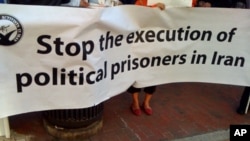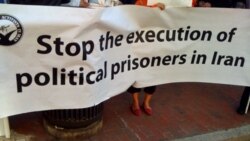In its latest annual human rights report, the U.S. State Department has called attention to the Iranian government’s practice of denying necessary medical treatment to certain prisoners. Ahmed Shaheed, the U.N. Special Rapporteur on Human Rights in Iran, has also cited this violation, as have the U.N. Special Rapporteur on Torture and several human rights monitors. Political prisoners appear to be particular targets; and human rights organizations have highlighted particular cases of such abuse.
On September 13, labor activist Shakrokh Zamani died at the infamous Rajaee Shahr prison in Karaj where he was serving an eleven year sentence for his peaceful activities on behalf of workers. The International Campaign for Human Rights in Iran reported that he died from a stroke days after prison authorities refused him medical treatment.
In August, journalist and human rights activist Narges Mohammadi was taken to a hospital in Tehran from Evin prison where she is serving a six year sentence for alleged crimes against national security. Amnesty International reports that since August, Mohammadi, who has a history of seizures and loss of vision, has been denied treatment by a specialist, and, even when prison doctors insisted she be hospitalized and stressed the need for further treatment, she was returned to prison.
Omid Kokabee is a post-doctoral Iranian laser physicist at the University of Texas at Austin who has been imprisoned since 2011 after returning to Iran to visit family. He is serving a 10 year prison term after being convicted on charges of communicating with a hostile government. He said he was jailed for refusing to cooperate with Iranian military projects. Recently his mother wrote a letter to Iran’s Supreme Leader calling for her son’s freedom. She also noted that after five years in prison her son is suffering from a series of medical maladies, including stomach and kidney ailments, for which he is being denied outside medical treatment despite the prison doctor’s recommendation.
In jailing these three citizens, the Iranian government has failed to uphold its own laws and international obligations that guarantee fundamental human rights. The denial of adequate medical care during their detention constitutes further and dangerous abuse. Iran must cease its denial of appropriate medical for prisoners, and at a minimum uphold basic international standards for their treatment.

















